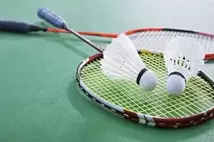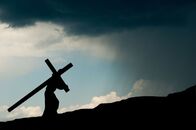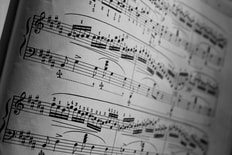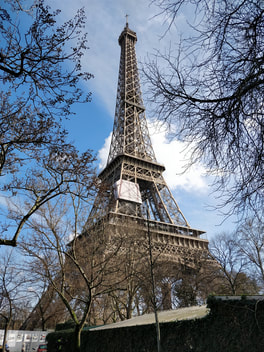Welcome to Pine Class
The more that you read,
the more thing you will know.
The more that you learn,
the more places you'll go!
-Dr Seuss
Welcome back!
Welcome back to school, and to our final term.
The children in Pine Class begin their school day at 8:45. The end of the school day is 3:30. Please drop off and pick up your children at the gate by the double doors of Pine Class, by the alleyway on the right hand side of the school.
Our PE days are Tuesday and Friday. Please ensure your child comes to school dressed in their PE kit.
Welcome back to school, and to our final term.
The children in Pine Class begin their school day at 8:45. The end of the school day is 3:30. Please drop off and pick up your children at the gate by the double doors of Pine Class, by the alleyway on the right hand side of the school.
Our PE days are Tuesday and Friday. Please ensure your child comes to school dressed in their PE kit.
Summer Term
Please see below about what topics we will be covering in the upcoming weeks.
|
English
In English the children will be delving into the art of persuasive writing, exploring the different features of different types of persuasive texts. During our lessons the children will uncover the power of language to sway opinions and inspire action. They will learn persuasive techniques such as rhetorical questions, emotive language, and powerful imagery. The children will also explore a variety of persuasive texts, from advertisements to speeches, and will channel their learning into a persuasive piece of writing at the end of the unit. The children will be learning a variety of new spelling patterns this term including homophones and near homophones. We will also be learning the common exception words for year 3 and 4. We will be completing a spelling test every week based on the 12 common exception word spellings for that week. The children will have opportunities to practise these spellings during their morning work. The common exception words can be found in their homework books. Please log onto spelling shed once a week to practise our spellings that we have been learning in class: www.spellingshed.com/en-gb/ |
Maths
This term the children will develop their knowledge of fractions, money, time and shape. Pupils will also be consolidating their learning from the beginning of the year. Multiplication development continues to be of high importance in KS2. Therefore the multiplication cards will be used and the children will have opportunities to practise and progress in their times tables knowledge. The multiplication card includes bronze, silver and gold. To achieve the bronze star, the children must recall that timetable in order; for example; 1x3=3, 2x3=6. To achieve the silver star, the children must recall that timetables in any given order and also understand the related facts; for example; 2x3=6 3x2=6 6÷2=3 6÷3=2 (using the three numbers within the number sentence and understanding how you can switch them round) To achieve the gold star, the children must understand the language related to multiplication and division; for example; the product of 4 and 7 is 28, the quotient of 54 and 6 is 9. |
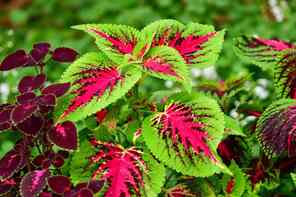
Science
This term the children will delve into the world of plants, learning about their anatomy, life cycles, reproduction, and adaptations. They will explore how plants grow from seeds to maturity, the process of photosynthesis, and the diverse ways plants have adapted to their environments. Through hands-on activities and observations, pupils will gain an understanding of the vital role plants play in ecosystems and human life, including food production, medicine, and environmental conservation. The plant unit fosters curiosity about the natural world and encourages an appreciation for the diversity and importance of plant life
This term the children will delve into the world of plants, learning about their anatomy, life cycles, reproduction, and adaptations. They will explore how plants grow from seeds to maturity, the process of photosynthesis, and the diverse ways plants have adapted to their environments. Through hands-on activities and observations, pupils will gain an understanding of the vital role plants play in ecosystems and human life, including food production, medicine, and environmental conservation. The plant unit fosters curiosity about the natural world and encourages an appreciation for the diversity and importance of plant life
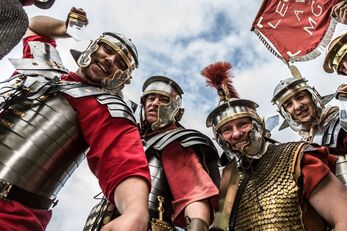
Geography/History
In Geography this term, children will learn about the continent's diverse physical and human geography. They will explore the major countries, rivers, mountains, and climates of Europe, as well as its cultural and historical significance. Pupils investigate how geography influences settlement patterns, economies, and lifestyles across the continent. Through maps, activities, and discussions, they will develop an understanding of Europe's place in the world and its connections to other regions. The unit encourages pupils to appreciate the rich tapestry of cultures and landscapes within Europe while also fostering global awareness and intercultural understanding
In the Romans unit in year 3, the children will learn about the ancient Roman civilization, including its culture, society, and impact on history. They will explore topics such as Roman daily life, architecture, government, and the expansion of the Roman Empire. Through engaging activities, stories, and artifacts, pupils will gain insights into Roman achievements, such as engineering marvels like aqueducts and roads, as well as the legacy of Roman law and language. The unit provides a fascinating glimpse into a pivotal period of history, fostering an understanding of the past and its relevance to the present day.
In Geography this term, children will learn about the continent's diverse physical and human geography. They will explore the major countries, rivers, mountains, and climates of Europe, as well as its cultural and historical significance. Pupils investigate how geography influences settlement patterns, economies, and lifestyles across the continent. Through maps, activities, and discussions, they will develop an understanding of Europe's place in the world and its connections to other regions. The unit encourages pupils to appreciate the rich tapestry of cultures and landscapes within Europe while also fostering global awareness and intercultural understanding
In the Romans unit in year 3, the children will learn about the ancient Roman civilization, including its culture, society, and impact on history. They will explore topics such as Roman daily life, architecture, government, and the expansion of the Roman Empire. Through engaging activities, stories, and artifacts, pupils will gain insights into Roman achievements, such as engineering marvels like aqueducts and roads, as well as the legacy of Roman law and language. The unit provides a fascinating glimpse into a pivotal period of history, fostering an understanding of the past and its relevance to the present day.
|
Art/DT
In our sculptures unit in Art, children will explore the world of three-dimensional art, focusing on sculpture as a form of expression. They will learn about different materials and techniques used in sculpture, such as clay modelling, papier-mâché, and found object assemblage. Through hands-on activities and experimentation, pupils develop their spatial awareness, fine motor skills, and creative problem-solving abilities. The unit encourages self-expression and imagination while fostering an appreciation for the art of sculpting and its role in human culture. This term in DT the children will be cooking, they will learn fundamental cooking skills and techniques while exploring the principles of nutrition, food hygiene, and healthy eating. Through hands-on cooking activities, they will develop an understanding of ingredients, measurements, and kitchen safety. Pupils may explore a variety of recipes, learning to prepare simple dishes and snacks independently or in small groups. DT cooking fosters creativity and confidence in the kitchen, encouraging children to experiment with flavours and ingredients while promoting an appreciation for diverse cuisines and the importance of balanced diets In the Art sculptures unit in Year 3, children explore the world of three-dimensional art, focusing on sculpture as a form of expression. They learn about different materials and techniques used in sculpture, such as clay modeling, papier-mâché, and found object assemblage. Through hands-on activities and experimentation, students develop their spatial awareness, fine motor skills, and creative problem-solving abilities. They study famous sculptures from various cultures and time periods, gaining inspiration for their own artistic creations. The unit encourages self-expression and imagination while fostering an appreciation for the art of sculpting and its role in human culture |
PSHE
|

Computing
In computing the children will be exploring and discussing the importance of internet safety and safety whilst online.
In computing the children will be exploring and discussing the importance of internet safety and safety whilst online.
Useful Information
School Day
The Year 3 team will open the doors to our classrooms at 8:45. To access Pine Class, you will need to walk down the alleyway past the Reception Classes. Anyone arriving after this time will need to enter school through the school office. There will be a member of staff on the door so if you have anything that you need to quickly communicate to the teacher please come talk to us. The children will have a playtime in the morning at 11:00. On some days, fruit is provided but is not always available for the children in Key Stage 2, so we suggest the children bring in a piece of fruit as a snack. Lunch is at 12:30. We politely remind all parents that we are very careful to maintain the safety of the children in our school and that we are a nut free school. The end of the day is 15:30 and the children will be delivered back into your care through the same doors that you dropped them off.
PE
We are continuing to encourage the children to get fit by having them wear their PE kit to school on the days they have PE, in our case that is a Tuesday and Friday. They will be allowed to wear shorts, t-shirt, a jumper and trainers in the summer and in the winter we suggest a tracksuit and trainers.
Homework
Your child will be receiving homework on a Friday to be returned the following Wednesday and should only take around 20 minutes. If there is a problem or you are unsure just ask a member of the Year 3 team.
Reading
We will try to read with your child as often as we can in school. This will be either 1:1 with an adult from Pine Class, or in a class guided reading activity where the children will read in a group or pair, and discuss the text as the whole class. We encourage you to read with your child as often as possible at home to support your child's confidence, understanding and fluency.
If your child would like access to more books at home, perhaps you could use Oxford Reading Owl to read different books. Oxford Owl has many different books and you can download and read them all online for free.
www.oxfordowl.co.uk/
For a recommended reading list, please visit:
schoolreadinglist.co.uk/reading-lists-for-ks2-school-pupils/reading-list-for-year-3-pupils-ks2-age-7-8/
www.amazon.co.uk/shop/tomtolkien?listId=3TEZXCF9J7T9C
The Year 3 team will open the doors to our classrooms at 8:45. To access Pine Class, you will need to walk down the alleyway past the Reception Classes. Anyone arriving after this time will need to enter school through the school office. There will be a member of staff on the door so if you have anything that you need to quickly communicate to the teacher please come talk to us. The children will have a playtime in the morning at 11:00. On some days, fruit is provided but is not always available for the children in Key Stage 2, so we suggest the children bring in a piece of fruit as a snack. Lunch is at 12:30. We politely remind all parents that we are very careful to maintain the safety of the children in our school and that we are a nut free school. The end of the day is 15:30 and the children will be delivered back into your care through the same doors that you dropped them off.
PE
We are continuing to encourage the children to get fit by having them wear their PE kit to school on the days they have PE, in our case that is a Tuesday and Friday. They will be allowed to wear shorts, t-shirt, a jumper and trainers in the summer and in the winter we suggest a tracksuit and trainers.
Homework
Your child will be receiving homework on a Friday to be returned the following Wednesday and should only take around 20 minutes. If there is a problem or you are unsure just ask a member of the Year 3 team.
Reading
We will try to read with your child as often as we can in school. This will be either 1:1 with an adult from Pine Class, or in a class guided reading activity where the children will read in a group or pair, and discuss the text as the whole class. We encourage you to read with your child as often as possible at home to support your child's confidence, understanding and fluency.
If your child would like access to more books at home, perhaps you could use Oxford Reading Owl to read different books. Oxford Owl has many different books and you can download and read them all online for free.
www.oxfordowl.co.uk/
For a recommended reading list, please visit:
schoolreadinglist.co.uk/reading-lists-for-ks2-school-pupils/reading-list-for-year-3-pupils-ks2-age-7-8/
www.amazon.co.uk/shop/tomtolkien?listId=3TEZXCF9J7T9C
Ways you can help
- If you would like to be a parent helper please contact either Miss North or the school office.
- Read with your child for 10 minutes every day
- Ask your child questions about stories that they are reading to you, or about stories you are reading to them.
- Ask your child to tell you the time and to help them become familiar with the time. To challenge your child, you could ask them to tell you the time as shown on a digital clock.
- Ask children to help you to count out money and ask for change
- Ask your children to spell the statutory spellings for Year 3 and 4 (found in the back of their Homework books)
The beautiful thing about learning, is that nobody can take it away from you.
- B. B. King
Websites to help...
Username- silsoels1
Password - silsoels1
Password - silsoels1
Thank you for your support,
Pine Class Team
Mrs Chandler - Class Teacher
Miss Thomas, Mrs Mayles (1:1), Mrs Spicer (1:1), Mrs Gwilt (1:1) - Teaching Assistants

